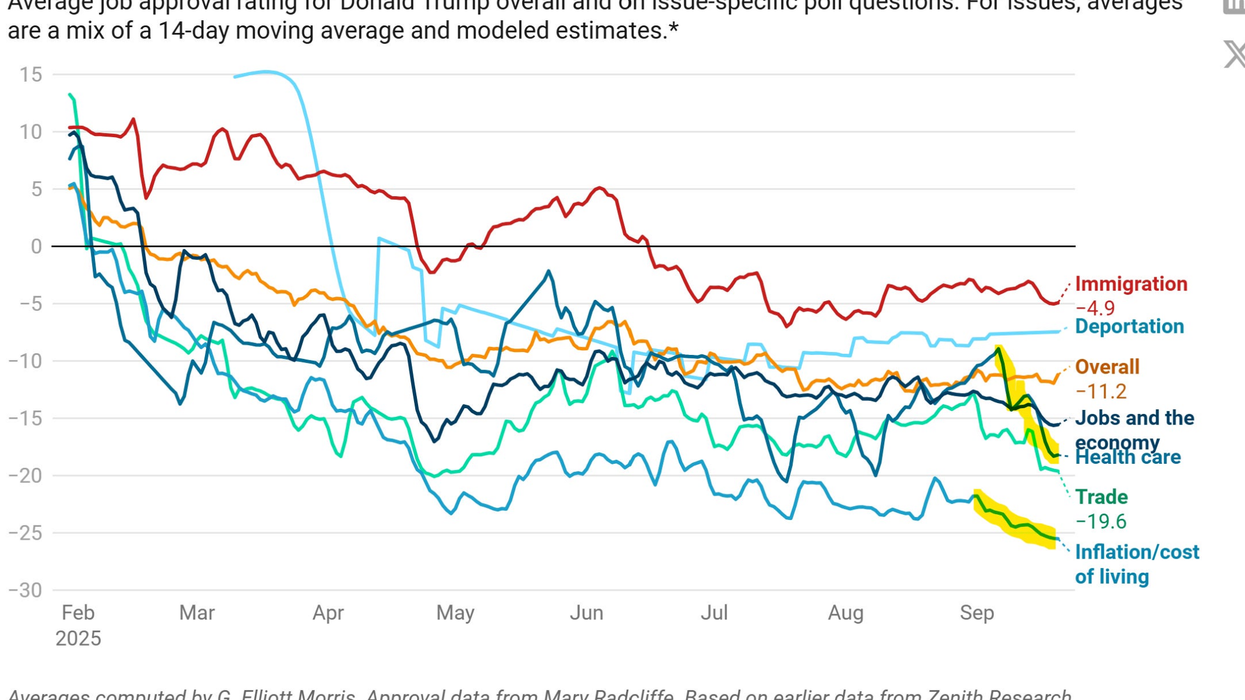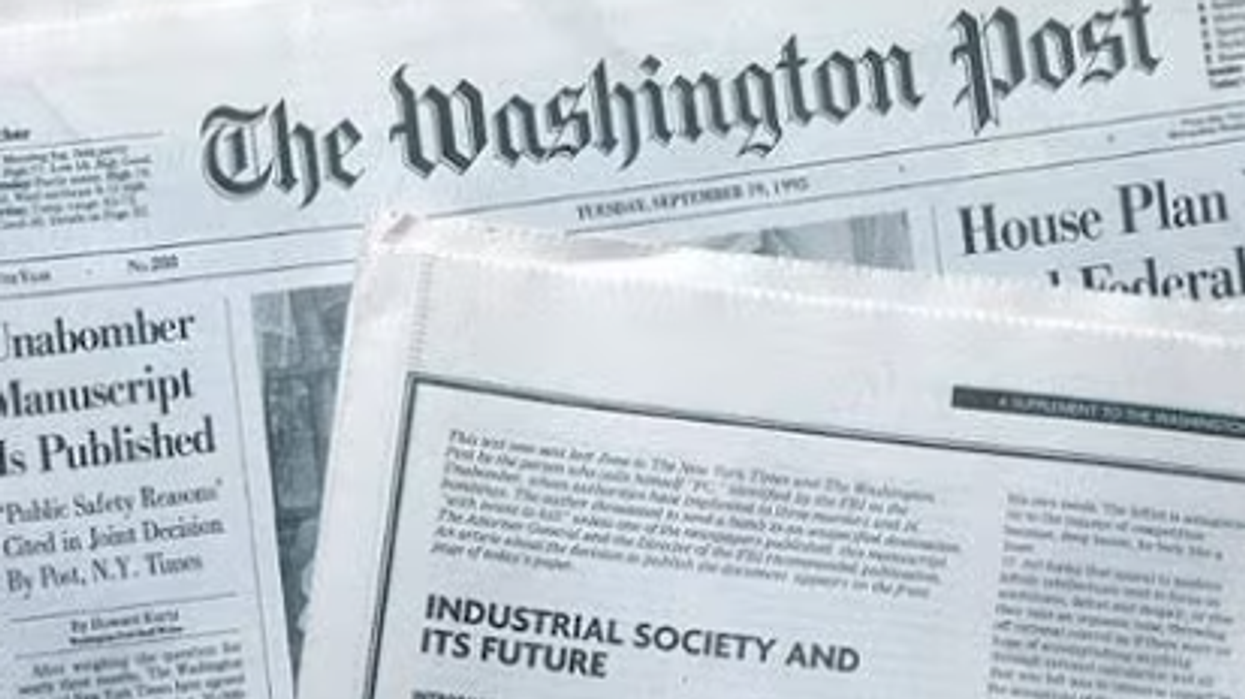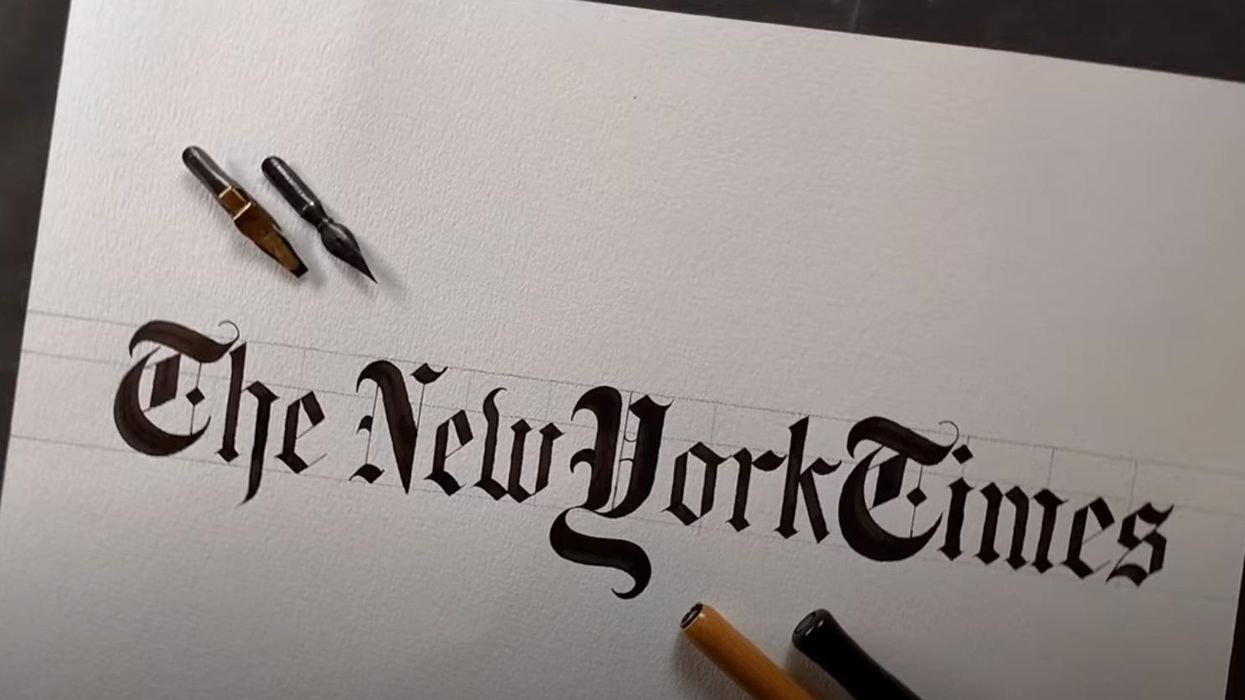Trump's Negatives Up: People Want Cheaper Groceries -- And Free Speech
In numerous posts, I have expressed some degree of puzzlement as to why this administration keeps doing things that regular folks don’t like. After all, they are led by a president who, as chaotic, corrupt and self-dealing as he is, has good antennae for working-class sentiment. Today, I’d like to speak freely, while one still can, and say a few words about why I believe free speech is the latest item of that list.
Let me remind you of my rap in this space, and I’ll be brief, because I don’t want to get out of my depth. I think of myself as a political economist, and I find that works best when I weight the two sides of that equation at 30 and 70 percent, respectively.
Trump has a reliable base who will stick with him no matter what. There was some overheated journalism around the base’s negative reaction to his suppression of the Epstein files, but it predictably fizzled. These are what political consultants call “unpersuadeables.” I don’t know their share of the electorate, but people say they’re in the 35-40% range, though that could be high. His “strongly approve” poll rating typical runs short of 30%
But the folks who put him over the top electorally—the marginal Trump voter—are not in this group. They didn’t like a lot of what they saw under Biden, particularly regarding affordability, and Trump argued he could get them their old prices back (not the whole story, of course).
Those folks are not happy (see figure above) and I see little prospect of their moods improving. Trump is 25% underwater on inflation and the cost-of-living. Some of that is incumbency bias (it’s his vibecession now) but it’s also definitely his fault, as most people recognize that his tariffs push the wrong way on affordability. Health care—another big affordability issue—is closely behind the cost-of-living’s disapproval rating, and note that some of most egregious coverage cuts from Trump’s budget bill haven’t even hit folks yet.
Why, then, does he continue to dig this hole for himself? First, he doesn’t believe any of the above negative polling or data, and will fire any messengers who try to intrude on his alt reality. Second, he overestimates his ability to convince the public not to believe their lying eyes. People’s number one, top concern right now is affordability and price increases, while he and his minions endlessly rattle on about how there’s no inflation and no tariff passthrough.
Now, they’re coming for free speech. They believe they can use their powers of persuasion to build a false narrative connecting free speech to violent radicalization, and, again, that may resonate with the MAGA base (though some MAGA reps are complaining of the rise of the “woke right”).
But if they continue to overreach on suppressing free speech, it will penetrate the lives of people who pay little attention to these types of arguments, folks for whom Fed independence and government shutdowns and budget reconciliation are just more DC noise. But when your policies make groceries and furniture and toys more expensive, when they see their kids taking ever longer to find work because you cracked what was a very welcoming labor market (see figure), and when you start removing people from TV because you don’t like what they say, that far surpasses DC noise.
It doesn’t matter that Jimmy Kimmel’s audience was relatively small. It matters that you’re intruding into normal people’s lives in ways that both make those lives more expensive and more attentive to your excessive reach. “Wait, they’re now kicking late-night talk-show hosts off of TV?!” is as politically salient—and damaging—to the incumbent as “Wait, they’re making my groceries cost more?!”
Anymore of such analysis and I’ll be over my skis. And the above is testable—let’s see what forthcoming polls say on the matter. But I think I’m right based on the simple principle that eventually, policy matters and bad policy redounds on its parents, especially when it breaks through into their daily lives.
And these folks just keep shoving terrible policies down America’s throat.
Reprinted with permission from Econjared.












